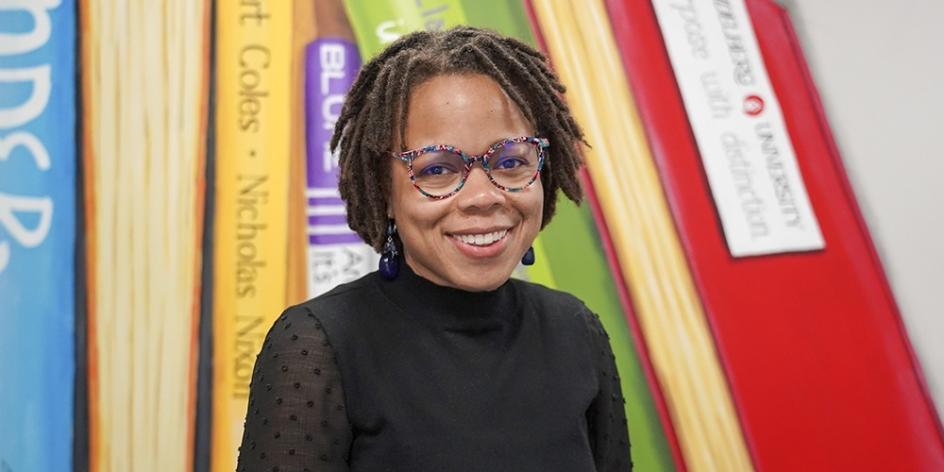
Heidelberg students, 10 in all, will have an awesome opportunity this fall to experience global citizenship firsthand by connecting with peers in Botswana.
Dr. Nichole Griffin, Assistant Professor of Education, has received a grant from the U.S. Department of State’s Citizen Diplomacy Action Fund to create an international collaboration, Reading to Learn, a six-week peer-tutoring reading program that will debut in October.
Reading to Learn will pair one Heidelberg student with two students from Naledi Senior Secondary School in Gaborone, the capital city in Botswana. The ‘Berg students will serve as peer mentors to the high school students in reading comprehension strategies to support them in their English studies, Nichole says.
“English is their national language but it’s not the primary language spoken in homes,” she explains. “These students tend to struggle with English because of the idioms and nuances. Our students will help them understand some of the complexities of the language by teaching them to use effective reading strategies and thus to do better academically.”
Rooted in Fulbright experience
The grant is an offshoot of Nichole’s learning and experience with her Fulbright Distinguished Award in Teaching in 2019 and the connections she made with teachers abroad on the topic of differentiated instruction – tailoring instruction to meet and maximize learning for all students.
After her Fulbright experience, Nichole returned to the classroom even more passionate about helping students learn not only content but the importance of global citizenship too. She’ll collaborate with fellow educators and Fulbright alumni Mrs. S. Motlhabane and Dr. K. Molosi, high school and university educators respectively who completed their Fulbright experiences in the U.S.
“One of the things that the Fulbright experience reinforced for me is to assess the present needs of students, in this case, in Botswana,” Nichole says. In a group chat, she learned about the need for students there to improve reading literacy and English skills. “This was something practical I could help with and our students could help with,” she adds.
For Reading to Learn, the pairings – one ‘Berg student to two Botswana students – will read passages together as ‘Berg students guide them in using effective reading strategies so the Naledi students can become stronger readers. They’ll come together for two-hour sessions over Zoom for six Saturdays. The 10 ’Berg students will receive training on campus in preparation for their work with the high school students in Gaborone.
Everyone, Nichole says, can relate to having needed support for something. That’s where the community aspect – collaboration, shared community and broadening community – comes into play. And Reading to Learn is a prime example.
“The appeal for me is that I want our students to continue to experience the notion of global citizenship and to understand that they can be global citizens in seemingly minute ways and still be really impactful,” Nichole says.
Competitive program, big impact
Earlier this year, the Department of State’s Bureau of Educational and Cultural Affairs invited U.S. citizen alumni of all U.S. government-sponsored exchange programs to apply for small grants of up to $10,000 as part of the Citizen Diplomacy Action Fund funding opportunity. Exchange program alumni from across the U.S. submitted proposals for public service projects that addressed the themes of protecting the environment, strengthening democratic institutions, fostering alumni network development, bolstering outreach to underserved communities and building community through arts, sports, language and technology.
Nichole was quite surprised to learn that her grant application was successful because of the competitive nature of the program. In all, a total of 39 projects were funded in communities in the U.S. and around the world in countries such as Mexico, Ukraine, Morocco and Uganda.
“The work of these Exchange Alumni as citizen diplomats – along with their energy, enthusiasm and expertise – benefits American and International communities, while supporting our efforts to make international education programs accessible to all,” said Lee Satterfield, Assistant Secretary of State for Educational and Cultural Affairs.
Here’s how to get involved
Any ’Berg student, regardless of major, is eligible to participate in the program. If you’re interested, reach out to Dr. Griffin at ngriffin [at] heidelberg.edu.